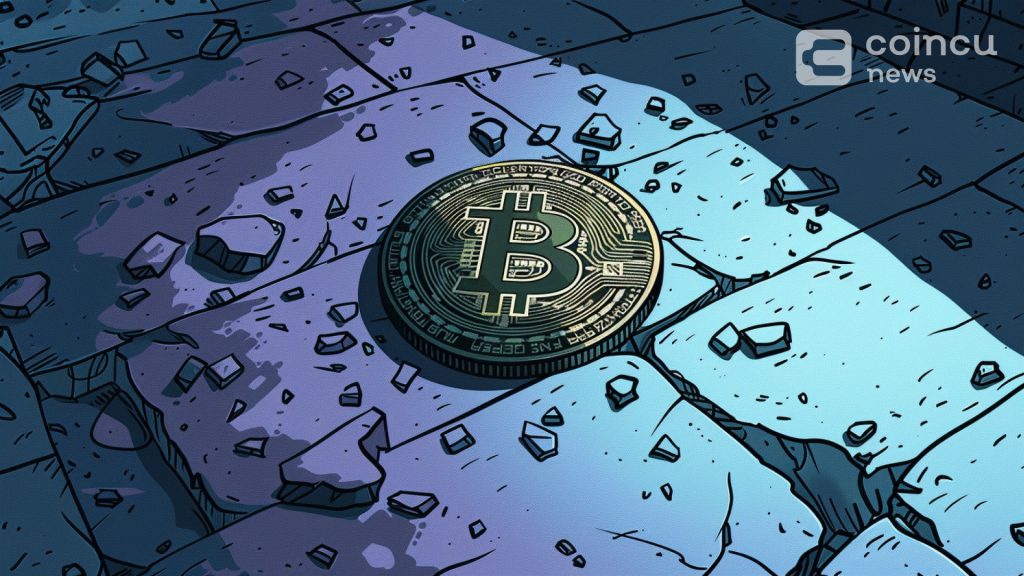1. What Is Bitget Token (BGB)?


Bitget Token (BGB) is the native utility token of Bitget, a crypto centralized exchange (CEX). The updated BGB token was launched in July 2021 with the aim of providing platform users with a form of payment within the ecosystem.
The utility token of Bitget can be used by traders for staking, social trading, profit sharing or receiving discounts on trading fees. BGB holders can also participate in the launchpad and launchpool.
2. Who Are the Founders of Bitget Token?


Bitget Token (BGB) is the exchange token of Bitget, a centralized cryptocurrency exchange (CEX). The social trading platform was founded in 2018, and registered in the Seychelles. Bitget is a fast-growing derivatives exchange platform with over 8 million registered users in more than 100 countries.
Sandra Lou is the CEO and founding member of Bitget. Lou has nearly 10 years of experience in the traditional financial industry. In 2016, she was introduced to Bitcoin, gained interest in blockchain technology and investing within the crypto industry. In 2017, she joined the founding team of Bitget.
3. What Makes Bitget Token (BGB) Unique?


In September 2022, the platform became the third-largest derivatives exchange in the world. According to Bitget, BGB provides low transaction costs as it uses a decentralized blockchain network with no middlemen.
BGB token is highly scalable, according to the website. As the Bitget platform grows, developers ensure that it can manage high transaction volumes without getting congested.
BGB also offers discounted trading fees of up to 20% off, and access to exclusive rewards and promotions to users of Bitget. With BGB, users can profit share using the Bitget flagship product, Copy Trade. Furthermore, holders of BGB can gain early access to projects on the launchpad, or stake and obtain tokens from the launchpool.
4. How Many Bitget Token (BGB) Coins Are There in Circulation?


The current circulating supply of Bitget Token is 1.4 billion BGB with the maximum amount of 2 billion BGB. The distribution of BGB tokens is as follows: exchange for BFT (Bitget DeFi Token) - 25%; Team Incentives - 20%; Branding (KOL) - 15%; Referrals - 15%; BGB ecosystem - 15%; Investor Protection Fund - 10%
5. How Is the Bitget Token Network Secured?


Bitget Token (BGB) is built on top of Ethereum’s blockchain according to the ERC-20 compatibility standard, which means it relies on a Proof-of-Stake (PoS) consensus mechanism. BGB tokens can be securely stored on any wallet which supports Ethereum (ETH).
Moreover, the exchange has received MSB licenses in the U.S. and Canada. The platform is KYC-compliant, Bitget requires identity verification to gain access to financial activities.
6. Where Can You Buy Bitget Token (BGB)?


Bitget Token (BGB) can be purchased directly on the Bitget exchange. BGB is also available for trading on Bitfinex.
Download the CMC mobile app to track prices of BGB in real-time.
7. Related Pages:


Read about KuCoin (KCS) and Huobi Token (HT).
What are centralized exchanges (CEXs)? Learn more with CMC glossary.
What are web 3.0 cryptocurrencies? Take a deep dive with CMC Alexandria.
8. What is Blockchain?


Blockchain is a decentralized and distributed ledger technology that securely records transactions across multiple computers in a verifiable and permanent way. It forms the underlying technology for cryptocurrencies like Bitcoin and enables transparency, security, and immutability.
9. What is Cryptocurrency?


Cryptocurrency is a digital or virtual form of currency that uses cryptography for security. It operates on decentralized networks, typically based on blockchain technology, and facilitates secure and transparent peer-to-peer transactions.
10. What is Bitcoin?


Bitcoin is the first and most well-known cryptocurrency, created in 2009 by an anonymous person or group known as Satoshi Nakamoto. It operates on a decentralized peer-to-peer network and is used for secure, transparent, and censorship-resistant transactions.
11. What is the difference between Bitcoin and Altcoins?


Bitcoin is the original and most widely recognized cryptocurrency, while altcoins refer to any other cryptocurrencies besides Bitcoin. Examples of altcoins include Ethereum, Ripple (XRP), Litecoin (LTC), and many others.
12. What is Staking?


Staking involves participants locking up a certain amount of cryptocurrency in a wallet to support the operations of a blockchain network. It is commonly associated with proof-of-stake (PoS) and delegated proof-of-stake (DPoS) consensus mechanisms, where participants receive rewards for helping secure the network.
13. How Can I Stake Cryptocurrency?


To stake cryptocurrency, you typically need to choose a platform or network that supports staking. Transfer your tokens to a compatible wallet, follow the staking instructions provided by the platform, and lock up the desired amount of cryptocurrency. Once staked, you may start earning rewards.
14. What Are Staking Rewards and How Are They Calculated?


Staking rewards are incentives provided to participants who lock up their cryptocurrency to support the network. The amount of rewards varies and is influenced by factors such as the network's inflation rate, the total amount staked, and the specific rules of the staking protocol.
15. Can I Unstake My Cryptocurrency at Any Time?


The ability to unstake and withdraw your cryptocurrency depends on the specific staking protocol and network. Some platforms may have lock-up periods or unbonding periods during which your staked tokens are inaccessible. Always check the terms and conditions of the staking service.
16. What are the Risks of Staking?


Staking comes with risks, including the potential loss of staked funds if a participant behaves maliciously or fails to fulfill their responsibilities. Market volatility can also impact the value of staked tokens. It's crucial to thoroughly research the staking protocol and understand the associated risks.
17. Can I Lose Money by Staking?


While staking is designed to be a rewarding activity, there is a risk of losing money, especially if the value of the staked cryptocurrency decreases or if the staking protocol encounters security issues. It's important to consider both the potential rewards and risks before participating in staking.





